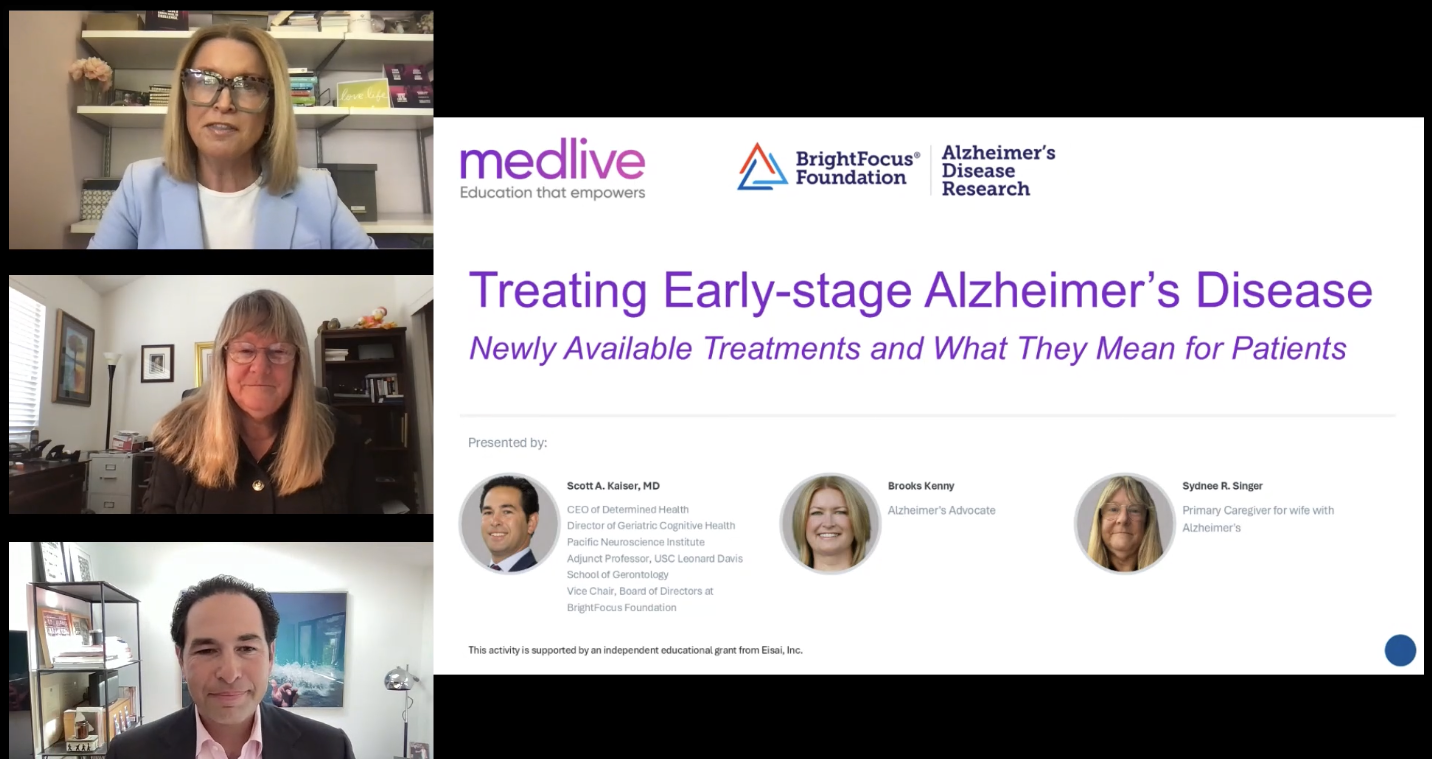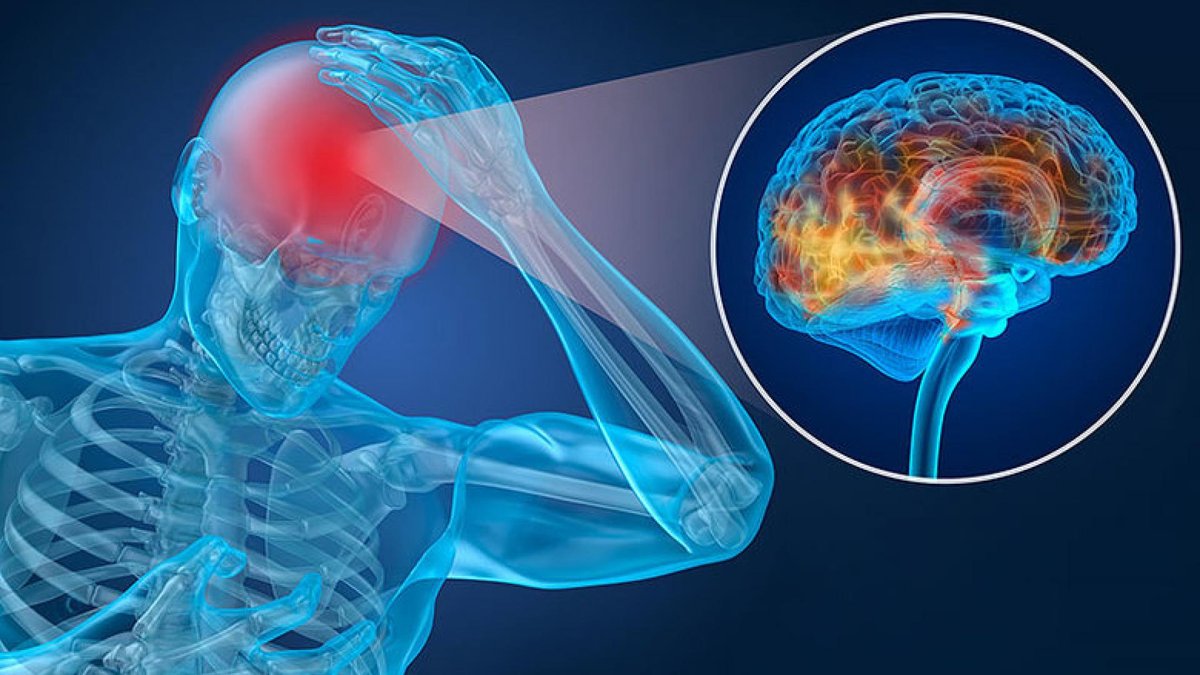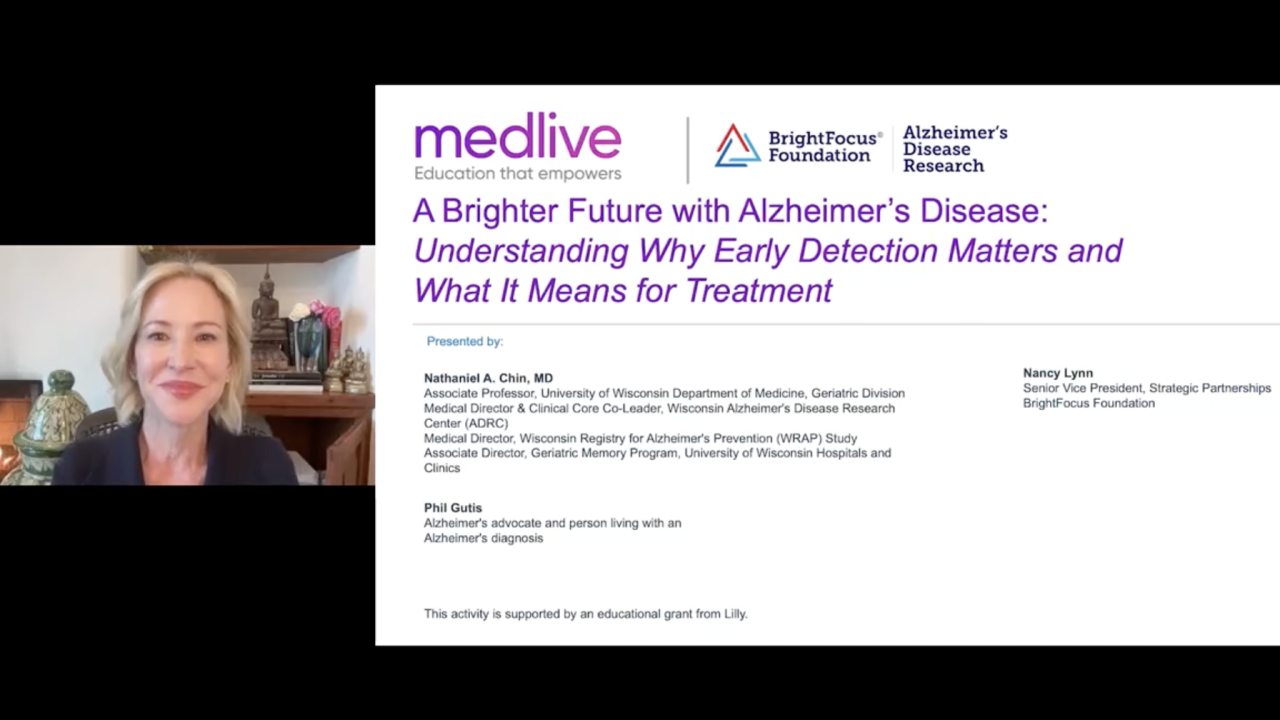
Learn important questions to consider when deciding to tell others that you or a loved one has Alzheimer’s disease.
There are two scenes in the movie “Still Alice” when Alice or her husband is suddenly confronted with questions about her behavior. The first happened after she went out running, lost track of time, and he could not contact her to remind her of their planned dinner with friends. By the time she returned home, they were already late. The second scene was with her own department chair about the student evaluations she received for the previous semester.
With none of the evaluations at her previous levels, Alice was faced with suddenly admitting she had early-onset Alzheimer’s disease. Once she did, everything was clear to her department chair. With the news out, and with her own realization her teaching abilities were no longer meeting her personal standard, her career took a dramatic turn. She ceased teaching and turned her courses over to colleagues in the department. Her long career, the one she so loved, was finished. She was 50 years old.
The scenes depict some of the many choices one has to make when diagnosed with Alzheimer’s. For the one diagnosed, when is the right time to reveal the diagnosis to friends, neighbors, and colleagues? When is the right time for family members to reveal a loved one’s diagnosis?
In the scene when Alice returns from her run, it is implied their friends have not been told about her Alzheimer’s. The friends are at the restaurant waiting, and her husband is very concerned they have stood them up. What is behind their hesitation?
At the university where she worked, should Alice have gone right to her department chair when she first learned her diagnosis? Would that have changed how he viewed her and her work? Would he have questioned her ability to teach, research, and mentor doctoral students? By revealing this news, would her decades long career end even earlier? Was she ready for that? Was it right to hide such important information?
It Can Take Time
With any news that changes the direction of our lives, such as learning we have Alzheimer’s, it takes time to integrate the information into our everyday lives and future plans. This is true for the diagnosed, spouses, family members, and close friends and colleagues. Everyone needs the time to digest the information and determine how to proceed. We need time to seek out experts and resources. We need time to put all this new information into a new plan for our lives.
Relationships May Change
Telling friends can be challenging. What do they know about the disease? How will this change the relationship we have enjoyed for so long? What do they need to understand the disease? If they never encountered this in their own lives, they may need education and resources to improve their understanding.
Work Life Will Change—Sooner or Later
Depending on where we are in our Alzheimer’s disease, our work life will be affected by an Alzheimer’s diagnosis. In the early stage, continuing to work may be an option. Further along, that may not be true. For Alice, her decision to continue teaching that year had backfired. Until she received the student course evaluations, she was unaware how the disease was affecting her teaching ability.
About BrightFocus Foundation
BrightFocus Foundation is a premier global nonprofit funder of research to defeat Alzheimer’s, macular degeneration, and glaucoma. Through its flagship research programs — Alzheimer’s Disease Research, Macular Degeneration Research, and National Glaucoma Research— the Foundation has awarded nearly $300 million in groundbreaking research funding over the past 51 years and shares the latest research findings, expert information, and resources to empower the millions impacted by these devastating diseases. Learn more at brightfocus.org.
Disclaimer: The information provided here is a public service of BrightFocus Foundation and is not intended to constitute medical advice. Please consult your physician for personalized medical, dietary, and/or exercise advice. Any medications or supplements should only be taken under medical supervision. BrightFocus Foundation does not endorse any medical products or therapies.
- Lifestyle










